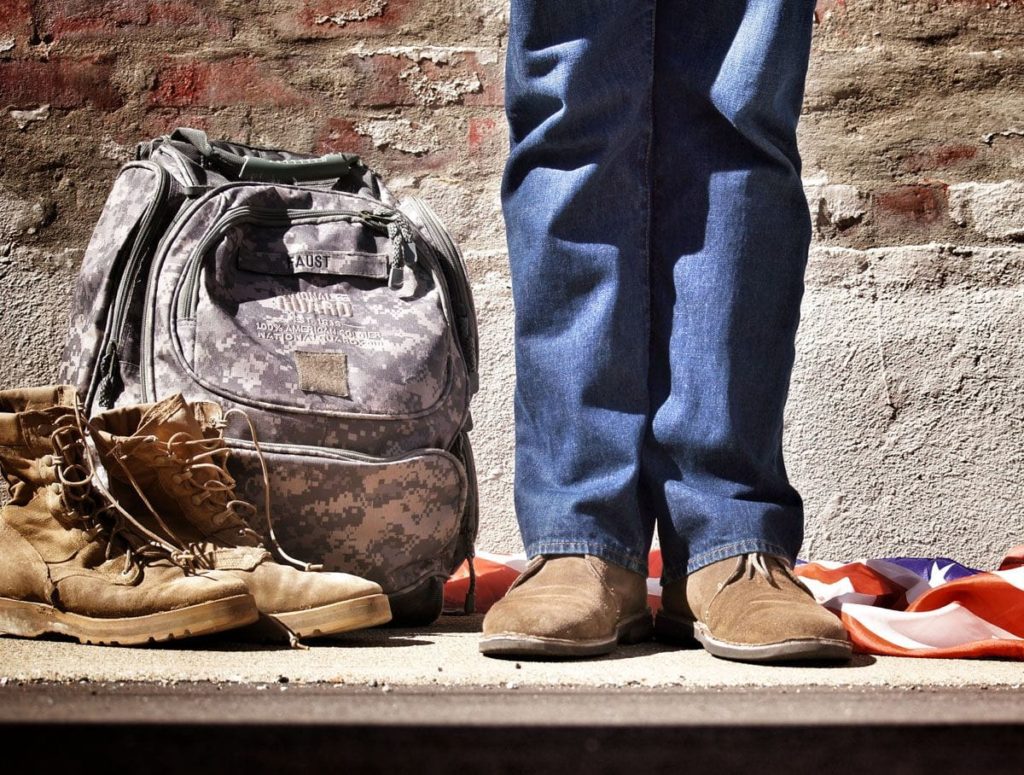Recent evidence from a U.S.-based study indicates that alcohol-consuming military veterans gain significant benefits from alcohol interventions specifically designed to address their unique, personal circumstances. Compared to the average person with no record of military service, the average veteran has a substantially increased chance of experiencing alcohol problems and qualifying for a diagnosis of alcohol use disorder (alcoholism and/or alcohol abuse). In a study published in May 2015 in the Journal of Studies on Alcohol and Drugs, researchers from two U.S. institutions sought to determine if veterans at risk for drinking-related harm benefit from personalized forms of alcohol intervention. These researchers found that veteran-specific interventions can substantially increase the likelihood of successfully avoiding alcohol intake.
Veterans and Alcohol
The average serviceman or servicewoman still enrolled in the military consumes alcohol more often than his or her civilian counterparts. In addition, servicemen and servicewomen have a higher rate of participation in binge drinking, which is defined by episodes of rapid alcohol consumption that produce legal drunkenness in no more than a couple of hours. Several factors may explain this situation, including a traditional association between drinking and military life, the relative lack of access to other forms of mind-altering substances while in the military and the degree to which military life entails exposure to combat and other dangerous, stress-inducing circumstances. When they leave the military, veterans often continue to drink heavily and expose themselves to significant alcohol-related harm. While a number of factors may influence veterans’ drinking behaviors, the presence of post-traumatic stress disorder (PTSD) undoubtedly plays a substantial role. In the aftermath of extended wars in Iraq and Afghanistan, large numbers of veterans have been exposed to combat, and combat exposure ranks as one of the most likely sources of PTSD. In turn, people affected by post-traumatic stress disorder have substantially heightened chances of developing serious alcohol problems, the U.S. Department of Veterans Affairs’ National Center for PTSD notes. Unfortunately, the association also works in the other direction; this means that people with alcohol problems have increased chances of developing PTSD if exposed to traumatic situations or events.
Personalized Alcohol Interventions
An alcohol intervention is a relatively short procedure intended to help doctors and other trained practitioners identify possible indicators of current or future alcohol problems, hold useful discussions on the impact of risky drinking and make referrals to treatment resources when appropriate. Some interventions last for just a few minutes, while others require a small number of brief sessions. A personalized alcohol intervention is an intervention geared to each individual recipient rather than to the generic public. During a personalized intervention, a participant receives such things as information on the issues associated with his or her specific drinking pattern, an exploration of the social norms that help drive his or her drinking behaviors and a review of his or her history of alcohol-related harm.
Usefulness for Veterans
In the study published in the Journal of Studies on Alcohol and Drugs, researchers from the University of Missouri and Harry S. Truman Memorial Veterans’ Hospital used data drawn from 325 veterans of recent military service to gauge the effectiveness of personalized alcohol interventions geared to the individual. Half of the participating veterans received a personalized intervention, while the other half received more general information on the consequences of risky alcohol use. The members of both groups took part in follow-up sessions that examined their drinking behaviors one month and six months after receiving a personalized intervention or general information. After analyzing the results of the follow-ups, the researchers concluded that, among those veterans who continued to drink, blood-alcohol levels in the group that received personalized interventions were not significantly lower or higher than the levels found in the group that received more general alcohol-related information. However, they also concluded that, among those veterans who stopped drinking after receiving an intervention, those individuals who received a personalized intervention had higher chances of remaining alcohol-free after six months than those individuals who received a more generic intervention. The study’s authors believe their findings indicate that young military veterans may gain considerable benefits from receiving a personalized alcohol intervention, at least as long as they establish an initial pattern of alcohol abstinence. The authors specifically note the cost effectiveness of personalized brief alcohol interventions in comparison to other methods of addressing alcohol problems in veterans.


